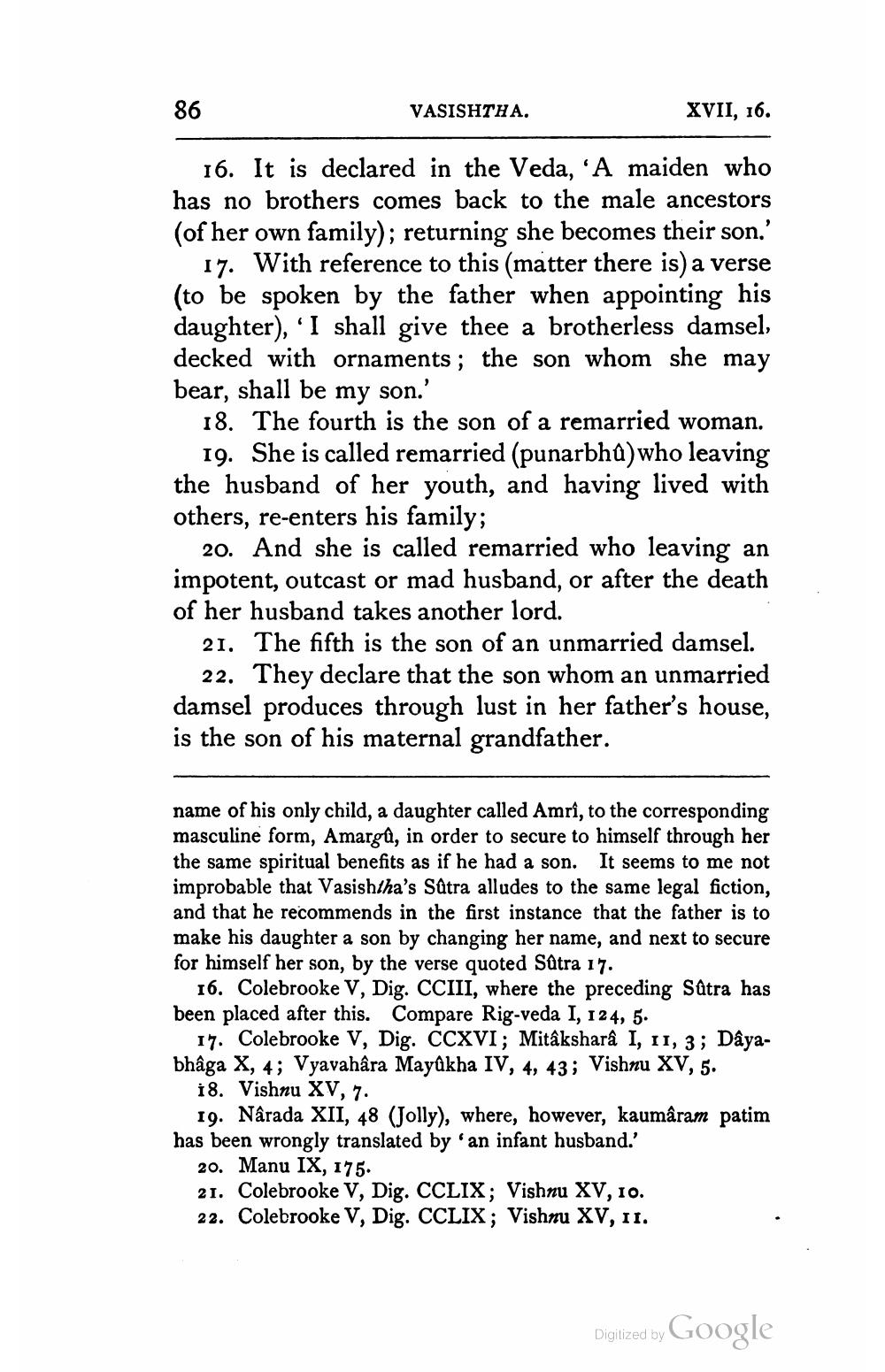________________
VASISHTHA.
XVII, 16.
16. It is declared in the Veda, 'A maiden who has no brothers comes back to the male ancestors (of her own family); returning she becomes their son.'
17. With reference to this matter there is) a verse (to be spoken by the father when appointing his daughter), 'I shall give thee a brotherless damsel, decked with ornaments; the son whom she may bear, shall be my son.'
18. The fourth is the son of a remarried woman.
19. She is called remarried (punarbhů)who leaving the husband of her youth, and having lived with others, re-enters his family;
20. And she is called remarried who leaving an impotent, outcast or mad husband, or after the death of her husband takes another lord.
21. The fifth is the son of an unmarried damsel.
22. They declare that the son whom an unmarried damsel produces through lust in her father's house, is the son of his maternal grandfather.
name of his only child, a daughter called Amri, to the corresponding masculine form, Amargū, in order to secure to himself through her the same spiritual benefits as if he had a son. It seems to me not improbable that Vasishtha's Sätra alludes to the same legal fiction, and that he recommends in the first instance that the father is to make his daughter a son by changing her name, and next to secure for himself her son, by the verse quoted Sūtra 17.
16. Colebrooke V, Dig. CCIII, where the preceding Sûtra has been placed after this. Compare Rig-veda I, 124, 5.
17. Colebrooke V, Dig. CCXVI; Mitâksharâ I, II, 3; Dâyabhậga X, 4; Vyavahâra Mayûkha IV, 4, 43 ; Vishnu XV, 5.
i 8. Vishnu XV, 7.
19. Nârada XII, 48 (Jolly), where, however, kaumâram patim has been wrongly translated by an infant husband.'
20. Manu IX, 175. 21. Colebrooke V, Dig. CCLIX; Vishnu XV, 10. 22. Colebrooke V, Dig. CCLIX; Vishnu XV, 11.
Digitized by Google




